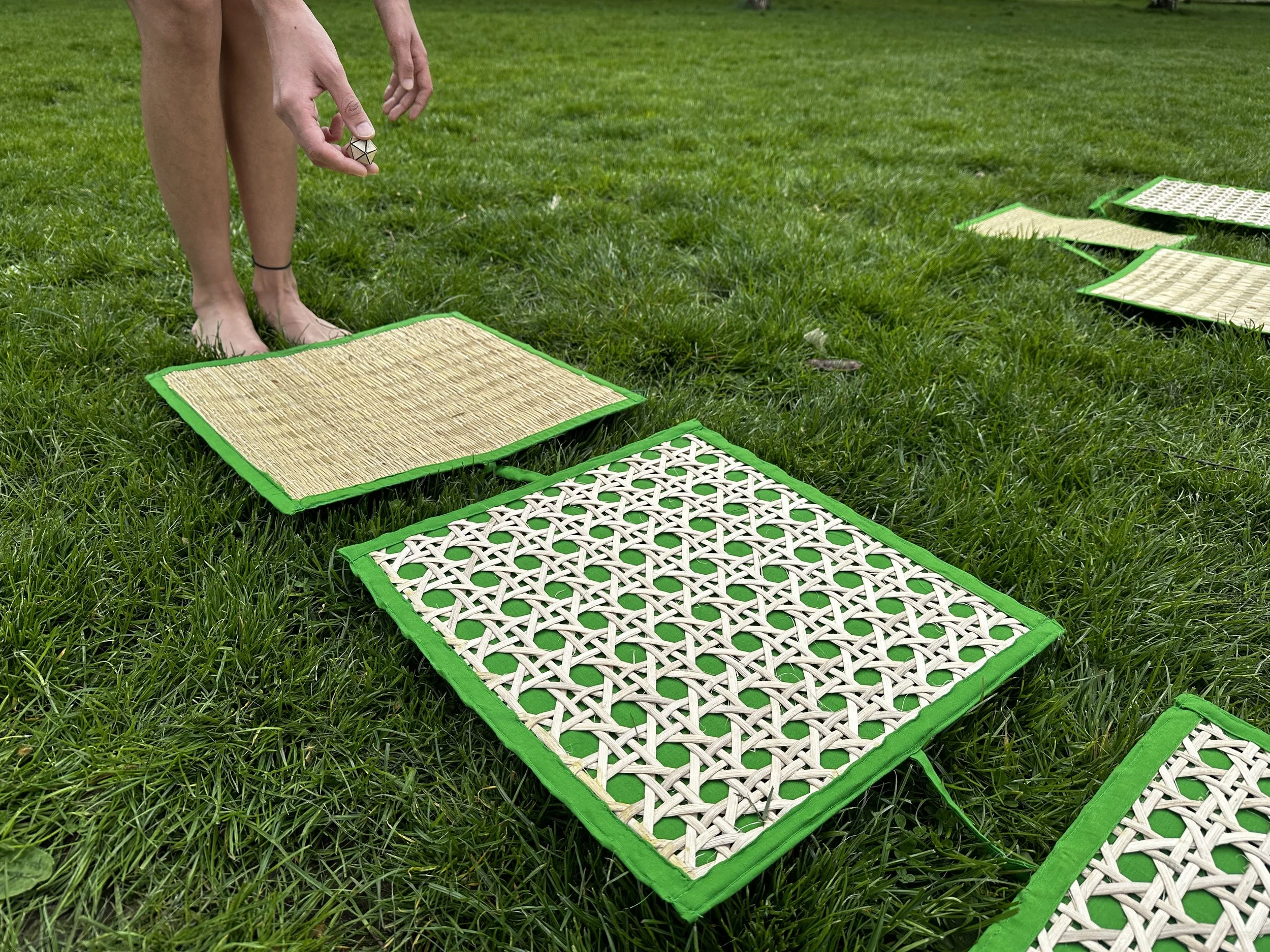Biyu Tabu Nibew
Biyu Tabu Nibew (translates to Snake, Snake, Snake) is an edu-info game for children from indigenous groups (Aka, Nyishi and Miji) about snakebite management in North-east India. This game enables children to learn prevention and management strategies about snakebite management through play, scenario building and community engagement.
Collaborators: Institute of Public Health, India x Grantham Institute, UK
Medium: Bamboo fibre, cloth, card paper
Year: 2023
Indigenous Game Design
Graduation Project | RCA X ICL

The One Health approach aims to integrate, sustainably balance and optimise the health of people, animals, and ecosystems. The objective of this project is to support educational access for human-wildlife conflict among indigenous communities in North-east India, with a focus on snakes and snakebite management. The approach used is a participatory design methodology that includes an ethnographic study, co-design workshops, and interviews with users and stakeholders. The investigation aims to understand how design can be used to localise an aspect of One Health from theory to practice, taking into account the contextual needs of the environment. The geographical location of the case study focuses on the states of Assam and Arunachal Pradesh, specifically examining the area of Pakke Tiger Reserve. This project serves as a blueprint for how design can be applied to fields of wildlife biology and public health in indigenous contexts, resulting in the use of frugal innovations to create educational access using place-based knowledge and locally sourced material.
The game consists of a set of craft playing mats, a deck of snake identification and scenario cards, and a wooden dice. The mats can be laid out in suggested shapes of a snake on the ground, and the game is played in two teams. Players from each team take turns to roll the dice onto the mat in front of them, and are asked questions from the card deck depending on the material the dice lands on. The first team to finish the course wins. This gameplay is a result of co-design workshops conducted with students in North-east India, and is modelled on existing indigenous games that exist there.